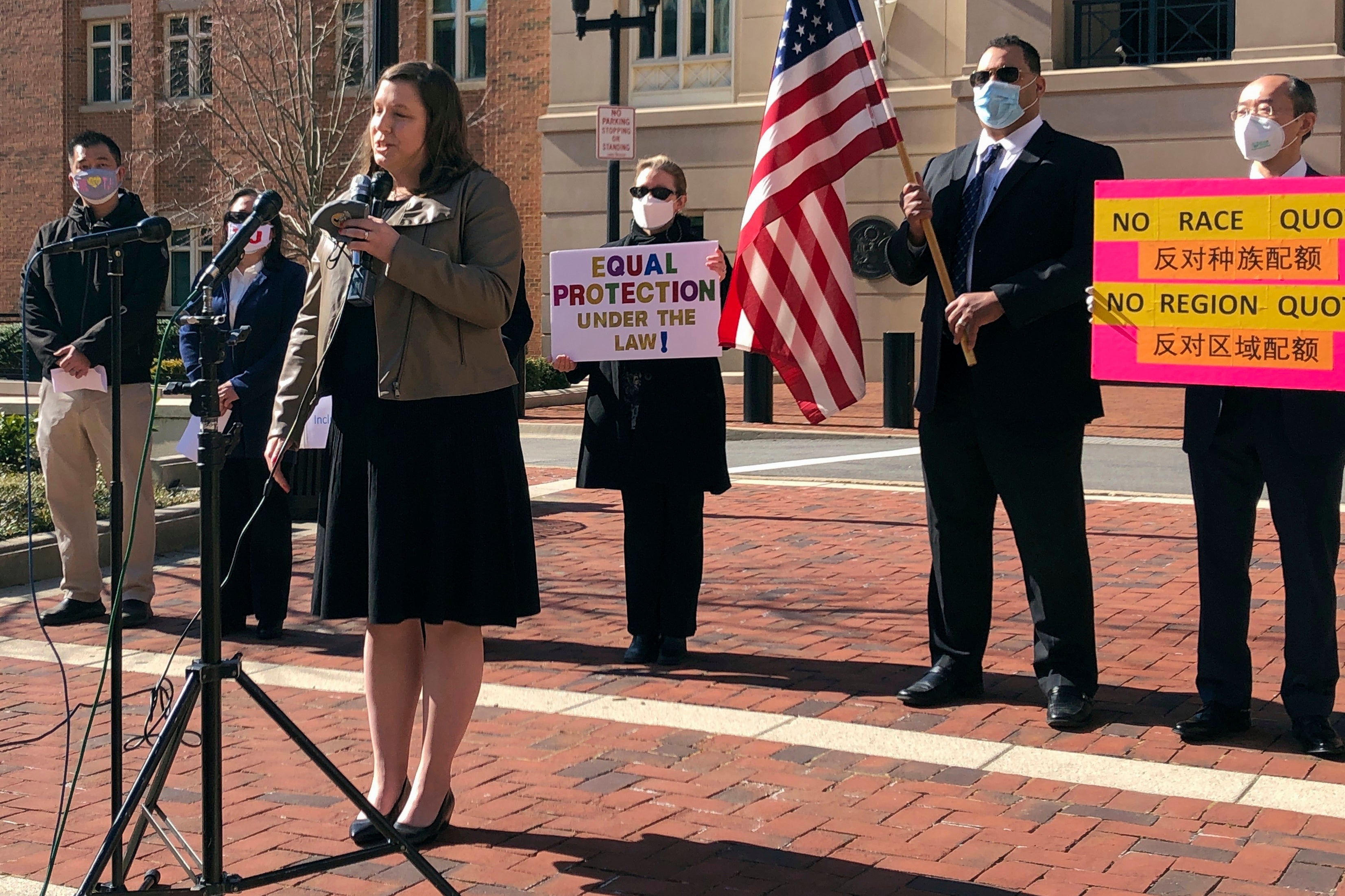Judge: New admissions policies at elite school discriminate
A federal judge has ruled that a Virginia school system illegally discriminated against Asian Americans when it overhauled the admissions policies at an elite public school

Your support helps us to tell the story
From reproductive rights to climate change to Big Tech, The Independent is on the ground when the story is developing. Whether it's investigating the financials of Elon Musk's pro-Trump PAC or producing our latest documentary, 'The A Word', which shines a light on the American women fighting for reproductive rights, we know how important it is to parse out the facts from the messaging.
At such a critical moment in US history, we need reporters on the ground. Your donation allows us to keep sending journalists to speak to both sides of the story.
The Independent is trusted by Americans across the entire political spectrum. And unlike many other quality news outlets, we choose not to lock Americans out of our reporting and analysis with paywalls. We believe quality journalism should be available to everyone, paid for by those who can afford it.
Your support makes all the difference.A federal judge ruled Friday that a Virginia school system illegally discriminated against Asian Americans when it overhauled the admissions policies at an elite public school.
The ruling from U.S. District Judge Claude Hilton found that impermissible “racial balancing” was at the core of the plan to overhaul admissions to Thomas Jefferson High School for Science and Technology, known as “TJ.” The school routinely ranks as the best or one of the best public schools in the country, and slots at the school are highly competitive.
In 2020, the Fairfax County School Board significantly revamped the admissions process at the school. A standardized test that had been a linchpin of the admissions process was scrapped in favor of a system that set aside equal numbers of TJ slots at each of the county's middle schools, among other changes.
Hilton, in his ruling, wrote, “The discussion of admissions changes was infected with talk of racial balancing from its inception.”
Although the school has enjoyed a stellar academic reputation for decades, Black and Hispanic students were woefully underrepresented in the student body.
TJ's current freshman class, the first to be accepted under the new policies, reflected a significant change in racial makeup. Asian representation decreased from 73% to 54%. The percentage of Black students increased from 1% last year to 7%. Hispanic representation increased from 3% to 11%.
The school system insisted its new admissions policies are race-neutral; among other things, they noted that the panelists who evaluate applications don't even know the race of the students they are evaluating.
The school system also argued that efforts to increase Black and Hispanic representation are legally permissible as long as the school board had not demonstrated a desire to harm Asian Americans.
John Foster, a lawyer for the school system, said the school board will appeal Hilton's ruling.
“The new process is blind to race, gender and national origin and gives the most talented students from every middle school a seat at TJ,” Foster said.
Hilton, though, said the backdrop under which the school board acted showed that racial considerations were first and foremost on the mind. He noted that the death of George Floyd in May 2020 prompted calls for racial justice across the country. He also noted that the Virginia General Assembly and Department of Education were pushing schools like TJ — known as “Governor's Schools” in Virginia — to develop plans to quickly address the lack of Black and Hispanic students.
“Throughout this process, Board members and high-level FCPS officials expressed their desire to remake TJ admissions because they were dissatisfied with the racial composition of the school,” Hilton wrote.
The Coalition for TJ, the group of parents who challenged the admissions process in court with help from the conservative Pacific Legal Foundation, said in a statement that it “is thrilled by Judge Claude Hilton’s clear renunciation of racism and discrimination and his powerful defense of equality.”
Hilton's ruling comes roughly a month after the U.S. Supreme Court agreed to hear a similar case filed by Asian American families against Harvard University over its admissions policies.